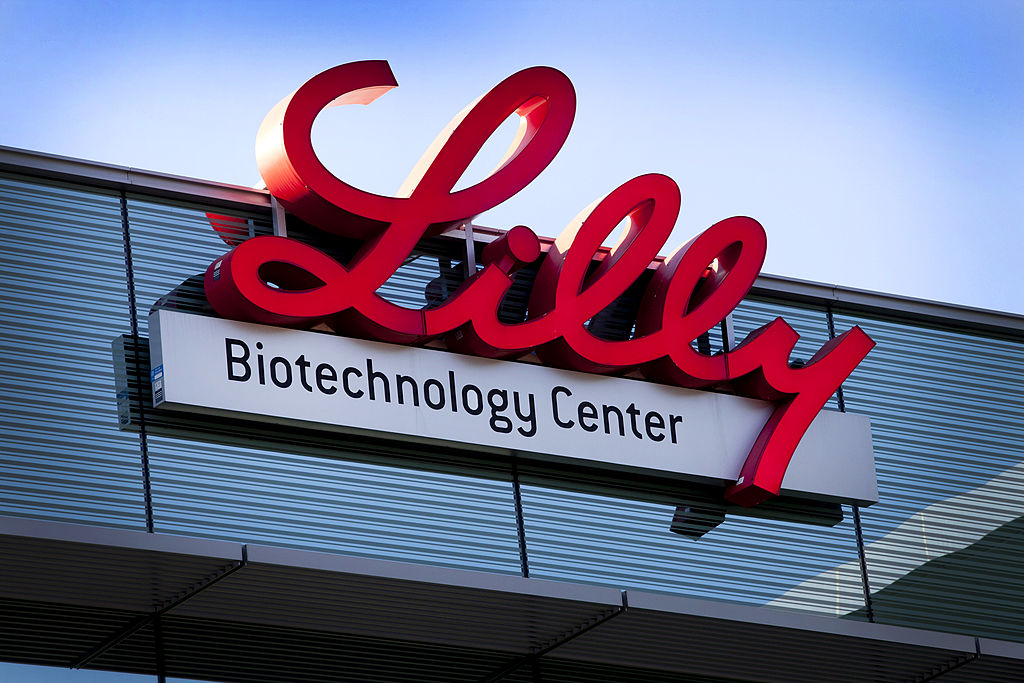

Eli Lilly is preparing to file for FDA review of its experimental Alzheimer’s disease drug under the same accelerated pathway the agency used to approve Biogen’s Aduhelm, and the company will do so with even less patient data than Biogen had to support its drug.
The Indianapolis-based pharmaceutical giant said Thursday a biologics license application for the drug, donanemab, would be filed later this year. That submission will be based on the results of a single Phase 2 clinical trial that met its main goal. The FDA had previously required companies to submit data from two pivotal studies for an application seeking regulatory approval of an Alzheimer’s drug.
Accelerated approval is a review pathway that can bring drugs to market sooner based on less evidence than is typically required. Approvals can be made based on a surrogate endpoint, a sign in clinical trials that the drug might work even if patient benefit has not been confirmed. For the speedy approval of Biogen’s Aduhelm, that surrogate endpoint was the clearance of the plaques of amyloid protein in the brains of Alzheimer’s patients. The FDA based its Aduhelm decision on three studies enrolling 3,482 patients total. In those studies, patients treated with the Biogen drug showed a reduction in amyloid plaque while those given a placebo did not.
Like Aduhelm, donanemab is also a monoclonal antibody that targets amyloid. The Lilly drug is designed to bind to a specific, modified form of the protein called N3pG and is intended to lead to a rapid and complete clearance of amyloid plaques.
Lilly tested its Alzheimer’s drug in a Phase 2 study that enrolled 272 patients randomly assigned to receive the experimental therapy or a placebo. Those patients, who were in the early stages of their disease, were selected based on cognitive assessments and brain imaging that confirmed the amyloid and tau protein buildup on the brain characteristic of Alzheimer’s. The study’s main goal was to show change over 76 weeks according to a composite assessment scale that measures cognition and function.
According to test results published last month in the New England Journal of Medicine, the baseline score for both groups was 106. At 76 weeks, the change in score for the donanemab group was -6.86. In the placebo group, the change was -10.06. That difference was enough to be statistically significant. On the measure of amyloid, Lilly reported that the average reduction was 84 centiloids compared to 108 centiloids at baseline. In a negative amyloid scan, less than 25 centiloids is typical, according to the company. But on several secondary goals that included other measures of memory and function, little difference was observed between the donanemab and placebo groups.
“In patients with early Alzheimer’s disease, donanemab resulted in a better composite score for cognition and for the ability to perform activities of daily living than a placebo at 76 weeks, although secondary outcomes were mixed,” the paper’s authors wrote. “Longer and larger trials are necessary to study the efficacy and safety of donanemab in Alzheimer’s disease.”
A longer and larger study is already underway. Lilly said that a double-blind, placebo-controlled Phase 3 study is continuing. That study is expected to enroll about 1,500 patients. Drugs submitted for review under the accelerated approval pathway may do so with Phase 2 data. Granting of an approval requires a company to conduct a large post-marketing study to confirm patient benefit. If the FDA approves donanemab, the ongoing Phase 3 test could become the drug’s confirmatory study.
Lilly revealed its plan to seek FDA approval of donanemab in its announcement that the agency had granted the drug “breakthrough therapy” designation. This designation speeds up the development and regulatory review of drugs for serious conditions when early clinical data indicate that the drug may improve on already available therapies with full FDA approval.
Photo: Konrad Fiedler/Bloomberg, via Getty Images


